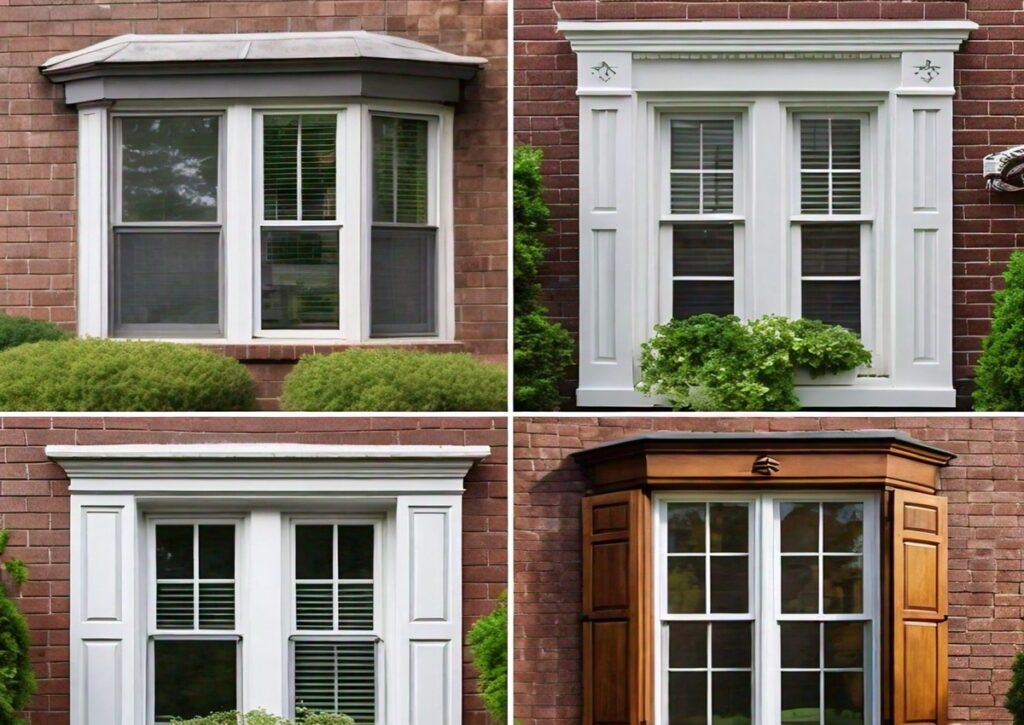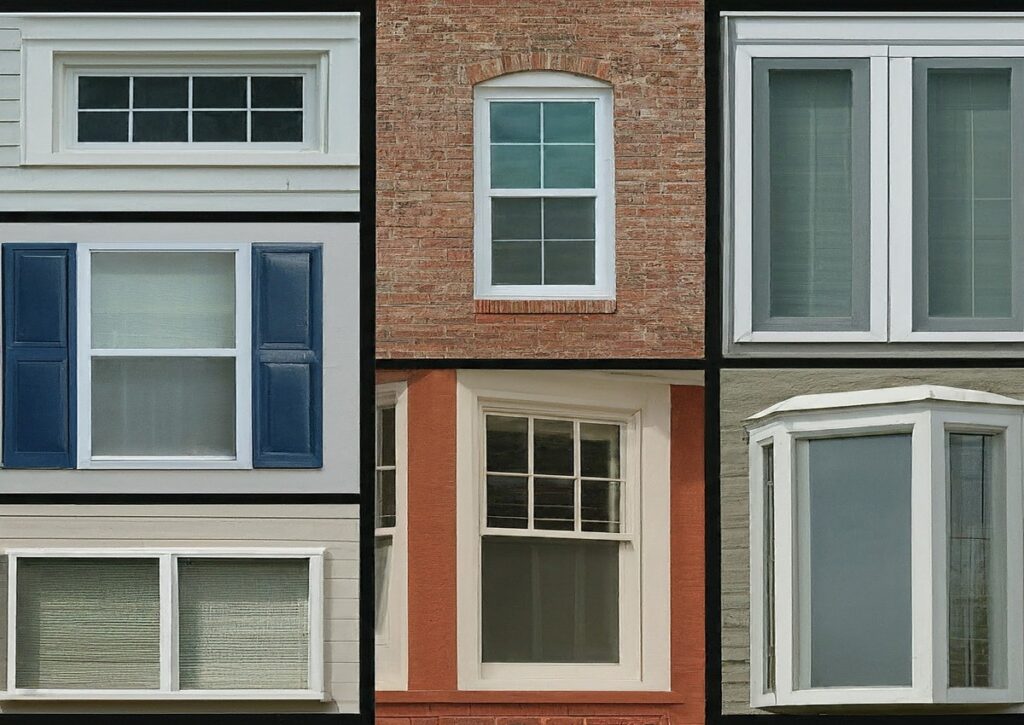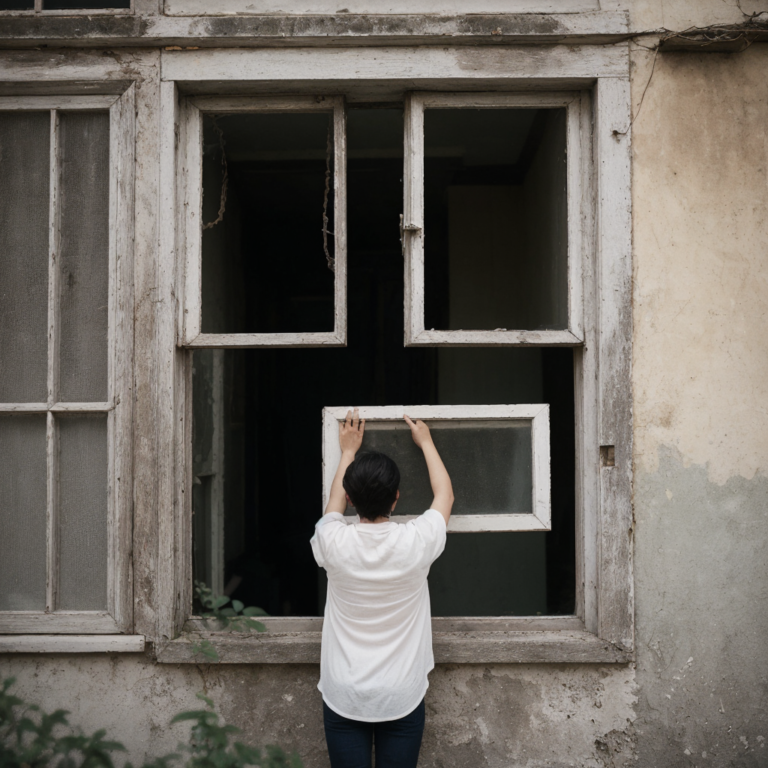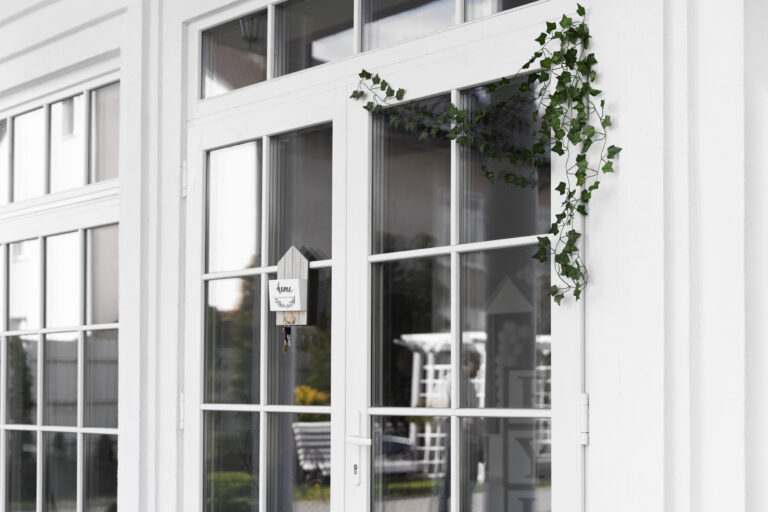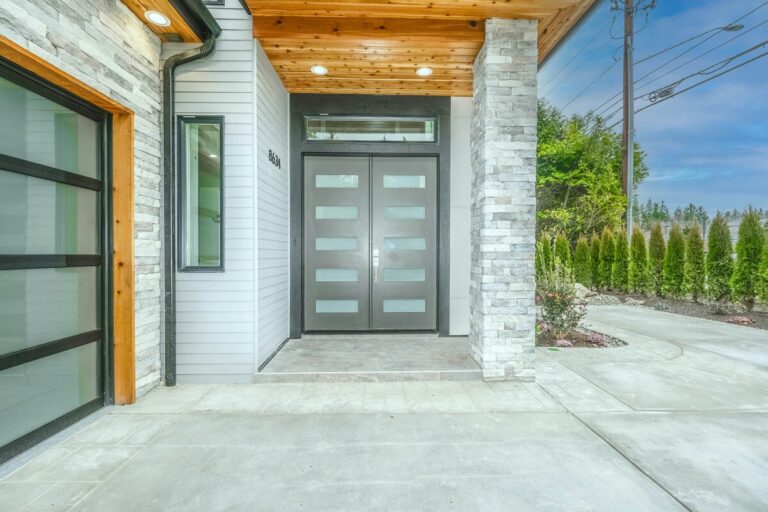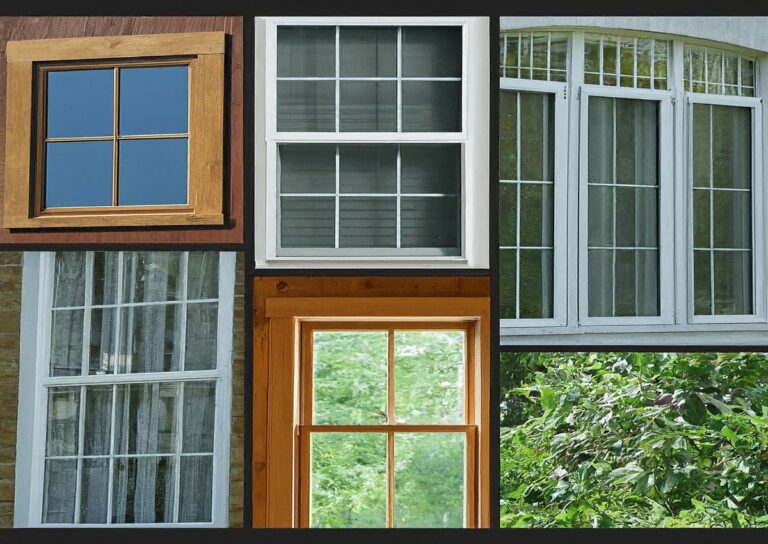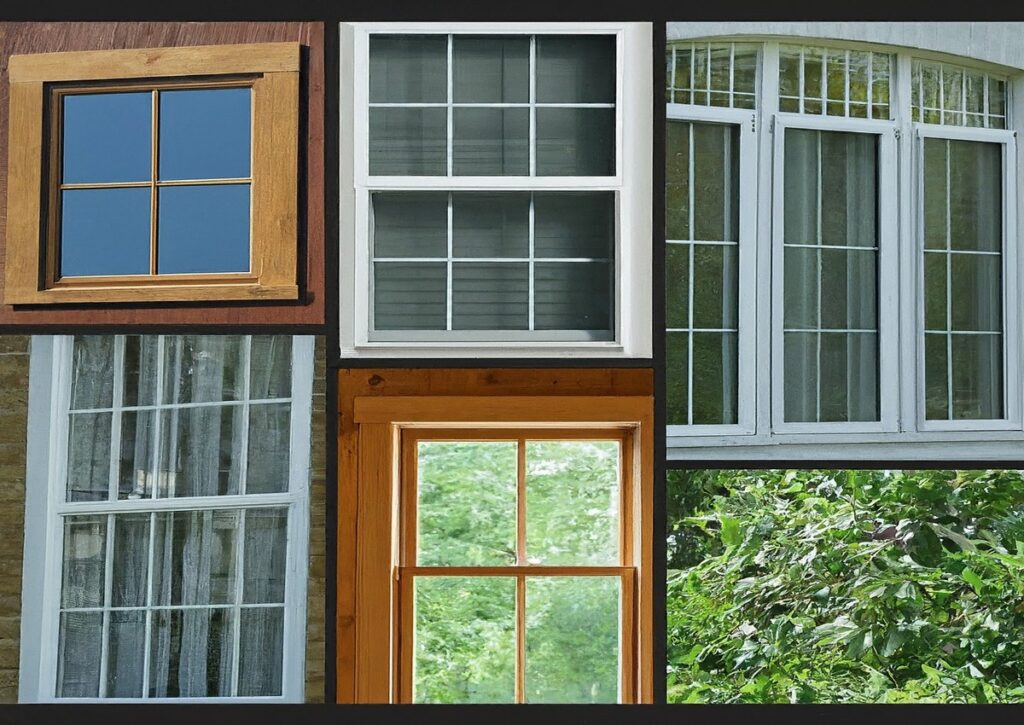When the time comes to replace your windows, understanding the variety of materials available can help you make the best decision for your home. Different materials come with their own set of benefits, so let’s dive into the common types used in replacement windows.
If you’re considering new windows for your home, you’re likely aware of the numerous options and decisions to be made. One of the most fundamental and significant choices is selecting the right window material for your home’s design and budget.
To aid in your decision-making process, here is an overview of the various window materials available, along with their advantages and disadvantages.
The Key to Great Windows: Choosing the Right Frame Material
When choosing window frames, the material you select can significantly impact the performance and insulation value of your windows. As the air in the cavities between the panes heats and cools, it expands and contracts, putting pressure on the seals and frames. Durable and sturdy window frames are designed to resist this pressure and warping due to temperature changes, which can extend the life expectancy of your windows.
Wood Windows
Wooden frames are a popular choice for their excellent insulation and charming aesthetic, especially in older homes. These frames are easy to paint and come in a variety of shapes and styles, adding character to your home. However, being a natural resource, wood is prone to rot and cracking and requires regular maintenance to keep it looking good. This is especially true in warm, humid climates where mildew and decay are more likely.
Advantages:
- Aesthetic Appeal: Wood windows offer a classic, timeless look that enhances the appearance of any home.
- Insulation: Wood provides excellent insulation, keeping your home warm in the winter and cool in the summer.
- Natural and renewable resource
- Good insulation value
- Can be finished naturally or painted any color
- Generally affordable
Disadvantages:
- Maintenance: Wood requires regular maintenance, including painting and sealing, to prevent rot and weather damage.
- Cost: Wood windows tend to be more expensive than other materials.
- Requires regular maintenance
- Prone to moisture and insect damage
- Susceptible to warping and gas escape
Aluminum Windows
Aluminum frames are an excellent choice for warm, rainy, and humid climates due to their resistance to rot and ability to withstand severe weather. They are easy to paint and style and require minimal maintenance. However, aluminum is a metal and conducts heat, which can lead to higher energy bills by bringing warm air into your home during the summer and losing heat in the winter. Therefore, aluminum frames are not highly rated for energy efficiency.
Advantages:
- Strength: Aluminum windows are strong and can support large panes of glass, making them ideal for modern designs.
- Low Maintenance: They require minimal upkeep and are resistant to rust.
- Sturdy and durable
- Recyclable
- Low maintenance
Disadvantages:
- Energy Efficiency: Aluminum is not as energy-efficient as other materials and can conduct heat and cold.
- Condensation: They can be prone to condensation, which can lead to moisture issues.
- Conducts heat, leading to increased heat loss
- Requires a thermal barrier (foam, polyurethane, or wood) to improve thermal performance
- Susceptible to water leakage at corner joints
Vinyl windows
Vinyl windows are a top pick for many homeowners due to their durability against harsh UV rays and high energy efficiency. They require minimal upkeep, making them an easy choice for those who prefer low-maintenance options. Available in a wide array of colors and styles, vinyl frames can complement most home aesthetics.
However, vinyl windows might not appeal to everyone, especially those with historic homes. They cannot be painted, limiting customization options once installed. It’s crucial to decide on your preferred style before purchasing vinyl windows.
Vinyl is an affordable, low-maintenance option for window frames that has seen significant improvements in recent years. Modern vinyl windows are more durable and better at reflecting UV light, ensuring your home stays comfortable and well-insulated.
One important consideration is that vinyl windows may not be as strong as other materials, which could be a concern during severe storms. To prevent issues like broken parts or warping due to temperature changes, always opt for high-quality vinyl windows. While vinyl cannot be painted like other materials, manufacturers offer a wide range of color options, so you’ll still have plenty of choices to match your home’s style.
Advantages:
- Low Maintenance: Vinyl windows are virtually maintenance-free, requiring only occasional cleaning.
- Cost-Effective: They are generally less expensive than wood or fiberglass windows.
- Energy Efficiency: Vinyl offers good insulation, improving your home’s energy efficiency.
Disadvantages:
- Aesthetic Limitations: While vinyl comes in various colors, it may not offer the same classic look as wood.
- Durability: Over time, vinyl can become brittle and may crack or warp.
Fiberglass windows
Fiberglass windows are becoming increasingly popular in our area as a modern alternative to traditional wood windows. These windows are known for their strength and excellent resistance to harsh weather conditions. They are available in a wide range of colors and styles, making it easy to customize your windows to match your home’s design. Fiberglass windows are suitable for both the exterior and interior of a house, providing the best insulation option when you’re considering new windows.
One downside is that fiberglass windows can be more expensive than other types. However, the investment is worthwhile because these windows are built to last and offer excellent insulation. This means you’ll save money over time on both replacement windows and energy bills, as they help reduce heating and cooling costs year-round.
Additionally, fiberglass window frames are favored by the LEED for Homes rating system due to their high performance and lower environmental impact compared to other window materials. Fiberglass is made from silica sand, a resource that is both abundant and recyclable, adding to its environmental benefits.
Advantages:
- Durability: Fiberglass windows are strong and durable, resistant to warping, swelling, and rotting.
- Energy Efficiency: They provide excellent insulation, helping to reduce energy costs.
Disadvantages:
- Cost: Fiberglass windows are often more expensive than vinyl but less expensive than wood.
- Limited Colors: They may have fewer color options compared to vinyl and wood.
Composite windows
Beyond the usual window materials, manufacturers are now using innovative options like wood/plastic composites, thermoplastic alloys, and cellular PVC. These advanced materials are engineered to enhance the performance and appearance of modern windows, making them easy to maintain. To discover the most current and cutting-edge window materials, reach out to AVI for a complimentary in-home consultation with no obligations.
Advantages:
- Durability: Composite windows are made from a blend of materials, offering the strength of wood and the low maintenance of vinyl.
- Energy Efficiency: They provide excellent insulation and energy efficiency.
Disadvantages:
- Cost: Composite windows can be more expensive than vinyl but offer better performance.
Choosing the right window material is crucial for the overall look, performance, and efficiency of your home. By understanding the benefits and drawbacks of each material, you can make an informed decision that suits your needs and budget.
Hybrid Wood/Aluminum Faced Windows
Hybrid wood/aluminum faced windows are a great choice for your home, combining the strength of aluminum with the beauty of wood. These windows are built with a strong structure, featuring an inclined one-piece sill and weatherstripping to keep out the elements. They also come with sealed glass, which enhances their quality and energy efficiency, making your home more comfortable and saving on energy costs.
One of the standout features of these windows is their convenient opening systems. They allow for excellent ventilation and are easy to clean, making them a practical choice for any household. The blend of aluminum and wood provides many design possibilities. You can choose from a variety of colors for the exterior cladding, which not only looks great but also reduces the need for maintenance.
Advantages:
- Energy Efficiency: The sealed glass and weatherstripping help to keep your home warm in the winter and cool in the summer, reducing energy bills.
- Durability: The strong aluminum frame combined with the aesthetic appeal of wood makes these windows long-lasting and attractive.
- Low Maintenance: With exterior aluminum cladding available in various colors, maintenance is minimal compared to all-wood windows.
- Versatile Design: A wide range of color options and design configurations means these windows can match any home style.
Disadvantages:
- Cost: Hybrid windows can be more expensive than standard windows due to the quality materials and construction.
- Installation: Proper installation is crucial to ensure the windows perform as intended, which may require professional help, adding to the overall cost.
Types of Glass for Windows
When it comes to treated window panes, there are four primary types: single, double, triple, and quad glazed. These terms describe the number of glass layers encased within the window frame.
Additionally, various glazing and coatings are applied to manage indoor temperatures, keeping heat out during summer and in during winter. These materials also block ultraviolet (UV) rays, reducing the impact of direct sunlight on furniture and other household items. More glazing layers generally translate to better energy efficiency.
There are three common types of coatings used on window panes:
- Low-Emissivity (Low-E) Coatings: These coatings reduce heat transfer through the glass, making your home more energy-efficient.
- Reflective Coatings: These coatings reflect sunlight, reducing heat gain and glare.
- Spectrally Sensitive Coatings: These coatings are designed to block certain wavelengths of light, improving overall comfort and energy efficiency.
Popular Window Styles
Double Hung Windows
Double Hung, the most popular choice, featuring two sashes that move up and down. This design allows half of the window to be open at a time.
Casement Windows
These windows are hinged vertically and open like a door, usually operated with a crank or handle.
Awning Windows
Similar to casement windows but hinged horizontally. When opened, they create an awning-like shape.
Sliding Windows
These windows slide open along top and bottom tracks. They open on one half and feature a vertical meeting rail.
Bow and Bay Windows
Typically larger, these windows project outward from an exterior wall, creating a “bay” or “bow” shape inside the room.
Conclusion
Choosing the right material for your replacement windows is essential for your home’s aesthetics, energy efficiency, and maintenance needs. Each material has its unique benefits and drawbacks. Wood windows offer a classic look and excellent insulation but require regular upkeep to prevent rot and weather damage. Aluminum windows are strong and low-maintenance, making them ideal for harsh climates, but they are less energy-efficient and conduct heat. Vinyl windows are affordable, low-maintenance, and provide good insulation but may not appeal to those seeking a traditional look. Fiberglass windows are durable and highly energy-efficient but can be more expensive. Composite windows combine the benefits of multiple materials, offering durability and excellent insulation, though they also come at a higher cost. Hybrid wood/aluminum faced windows blend the strength of aluminum with the beauty of wood, providing minimal maintenance and excellent energy efficiency, but they can be pricey and often require professional installation.
By understanding the advantages and disadvantages of each option, you can make an informed decision that fits your home’s style, climate, and budget, ensuring long-term satisfaction with your new windows. Whether you prioritize aesthetics, durability, energy savings, or maintenance, there’s a window material that will meet your needs and enhance your home’s comfort and value.
FAQs About Replacement Window Materials
- What are the most energy-efficient window materials?
Fiberglass and vinyl windows are known for their excellent energy efficiency. Fiberglass provides superior insulation and is highly durable, making it a great long-term investment. are also energy-efficient and cost-effective, offering good insulation with minimal maintenance.
- Which window material requires the least maintenance?
Vinyl and aluminum windows require the least maintenance. Vinyl windows need only occasional cleaning, while aluminum windows are resistant to rust and do not require frequent upkeep. Both materials are designed to withstand weather conditions without significant wear.
- Are wood windows a good choice for my home?
Wood windows are an excellent choice if you value aesthetics and insulation. They offer a classic, timeless look and provide great insulation, keeping your home comfortable year-round. However, wood windows do require regular maintenance, including painting and sealing, to prevent rot and damage.
- How do composite windows compare to other materials?
Composite windows combine the best features of different materials, offering durability, excellent insulation, and low maintenance. They are made from a blend of materials such as wood and vinyl, providing strength and energy efficiency. However, they can be more expensive than vinyl but offer better performance and longevity.
- What should I consider when choosing a window material for a humid climate?
In humid climates, materials like aluminum and composite are ideal choices due to their resistance to moisture and rot. Aluminum windows are durable and low-maintenance, while composite windows offer additional insulation and durability. Avoid wood windows in humid areas unless you are prepared for regular maintenance to prevent rot and mildew.

